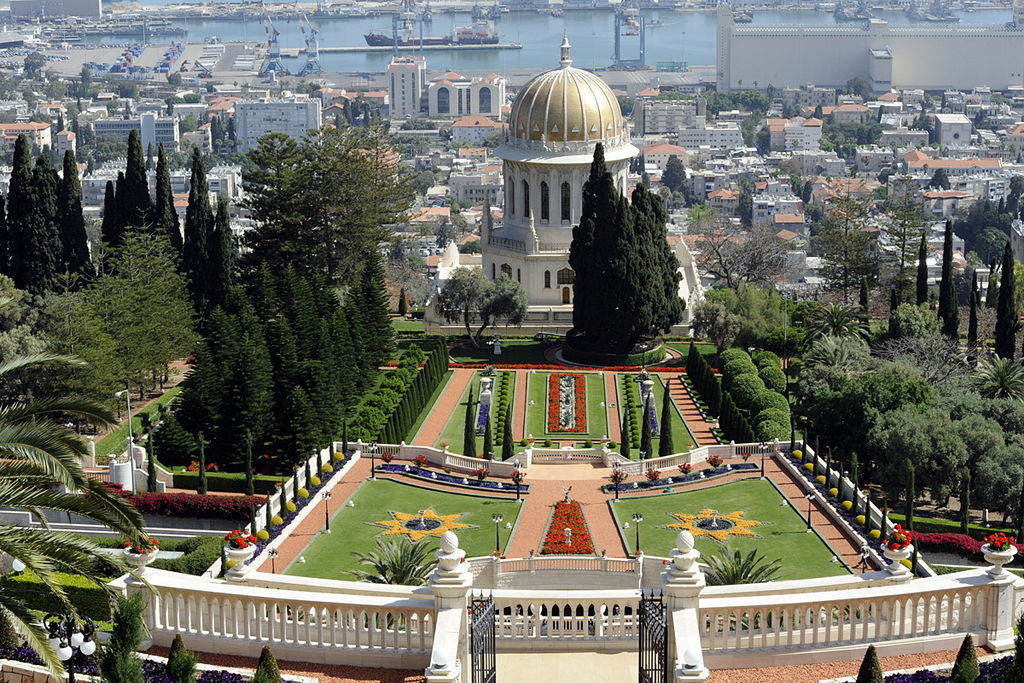In this mailing:
- Denis MacEoin: Bishop Graham
Tomlin and the Demonization of Israel
- Amir Taheri: Iraq: The Banker,
the Mullah, the Militia and the Cook
by Denis MacEoin • June 24, 2018 at
5:00 am
- If Israel plays a part
in the persecution of Christians, it must be doing a very bad
job indeed.
- "Shortly after
the [1967] war, [Israeli Defense Minister] Dayan met with
officials of the Muslim Wakf, who governed the holy site, and
formally returned the Mount to their control.... the Wakf would
determine who prayed at the site, an arrangement that would
effectively bar non-Muslim prayer." — Yossi Klein Halevi, The
Atlantic.
- It should be clear
from the above that Israel is one of the least likely countries
in the world to persecute the followers of any religion. A
well-educated and thinking man, Bishop Tomlin ought to have
known this or have been able to check the facts for himself.
None of the above is remotely secret.
- "[A]re the world
Christian bodies denouncing the Islamic forces for the ethnic
cleansing, genocide and historic demographic-religious
revolution their brethren are suffering? No. Christians these
days are busy targeting the Israeli Jews." — Giulio Meotti,
Italian journalist.

Protected by
Israel's freedom of religion, Baha'is have built their two holiest
shrines in Israel, and on the slopes of Mount Carmel their World
Center (pictured): vast terraced gardens and white marble buildings,
including the seat of their international governing body, the
Universal House of Justice, and central archives. (Image source: US
Embassy Israel/Wikimedia Commons)
Anglican Bishop Graham Tomlin, heads the diocese of
Kensington in the Royal Borough of Kensington and Chelsea, which has
many of London's most expensive residential properties, is
undoubtedly a man of brains and good works.[1]
On May 26, 2018, however, he published in The Times
an article, entitled, "If this rich vein of wisdom disappears, a
part of us dies". The "rich vein of wisdom" to which
he refers is the long tradition of Christian thought and experience
in the region where the religion first appeared, and was handed down
through centuries of Islamic rule. For the most part, the article is
a well-argued defence of Christians in the Middle East:
The systematic persecution of Christians in the Middle
East is a serious threat. The number of Christians in Middle Eastern
countries has fallen from about 20 per cent to 4 per cent in recent
years and regular bomb attacks on Christians in Egypt are becoming
part of a deadly pattern.
by Amir Taheri • June 24, 2018 at
4:00 am
- The young technocrats
around Muqtada al-Sadr get their ideas, especially on economics,
more from Milton Friedman's texts than Muhamad-Baqir al-Sadr's
"Our Economy".
- The next step should
be to also accept ideological and political diversity. I believe
that in the past 15 years, Iraq has made significant progress in
that direction.
- In a system of
down-to-earth politics, Iraq would be liberated from utopian
illusions that have caused it so much tragedy, and focus on
bread-and-butter issues closer to the concerns of both our
banker friend and his cook.
Muqtada
al-Sadr is a maverick Iraqi Shiite cleric who has recast himself as a
talented political maneuverer, trying to captain a team that brings
together antediluvian Communists on the one hand and shadowy Shiite
militiamen on the other. (Image source: France24 video screenshot)
"How is Iraq?" we asked a friend just back
from Baghdad the other day.
"Bad, very bad, my friend," was the reply.
"Even my cook has an opinion about how to form the new
government."
The Iraqi friend is a prominent banker who spent his
youth in exile in the West and returned home only after the fall of
Saddam Hussein. However, he seems to have retained the traditional
mindset of many of us Middle Easterners, who see ourselves as victims
of despotism and yet fear any system in which even the cook has an
opinion.
To be fair to our friend, the current political scene
in Baghdad isn't exactly reassuring. The general election failed to
produce an outright majority and the formation of a new government
could take weeks if not months.
|































No comments:
Post a Comment